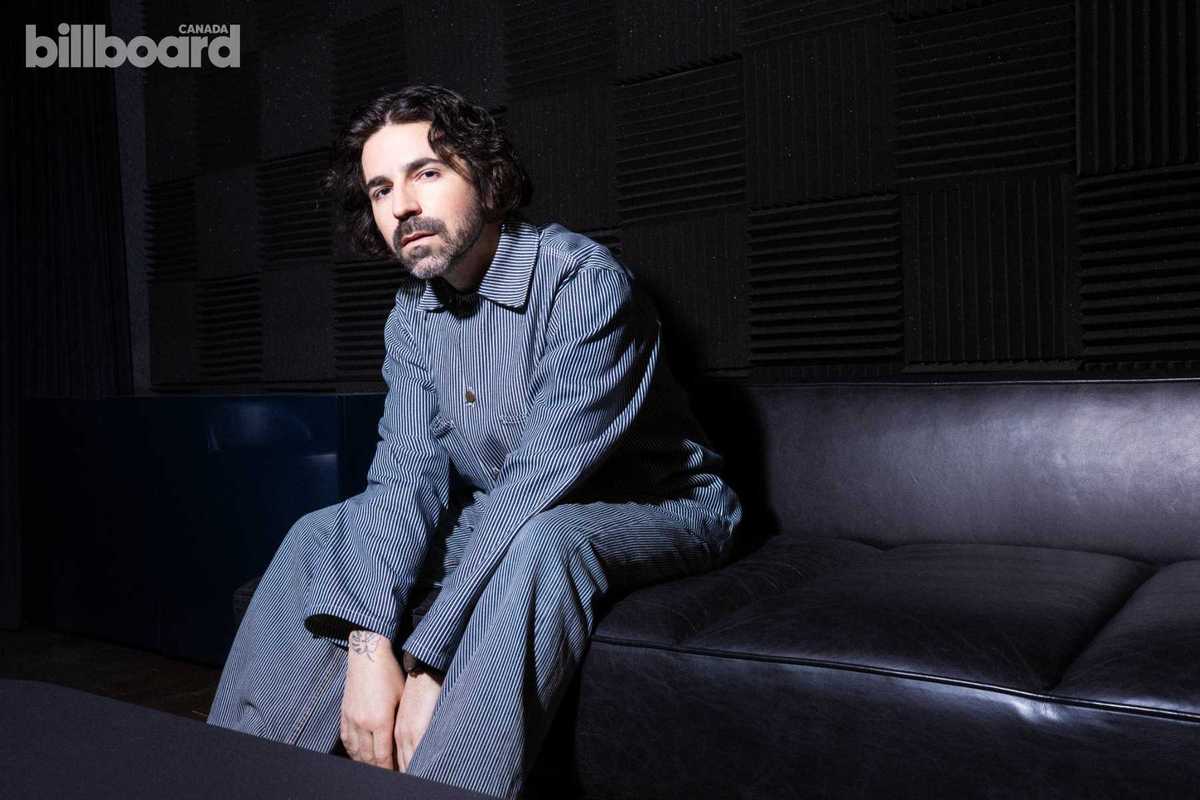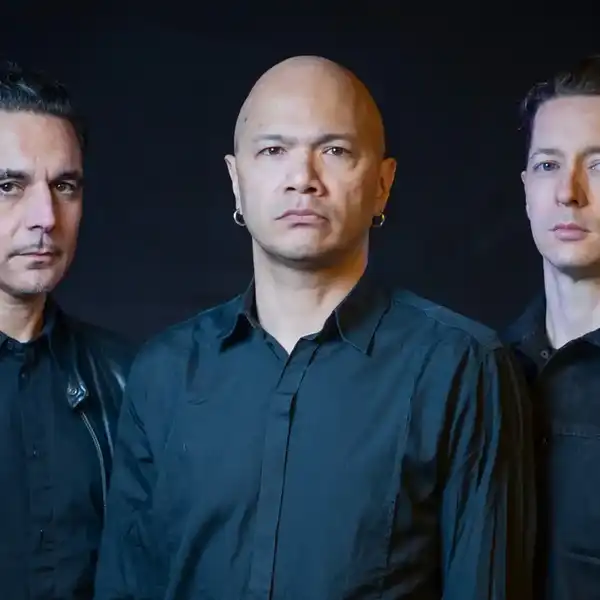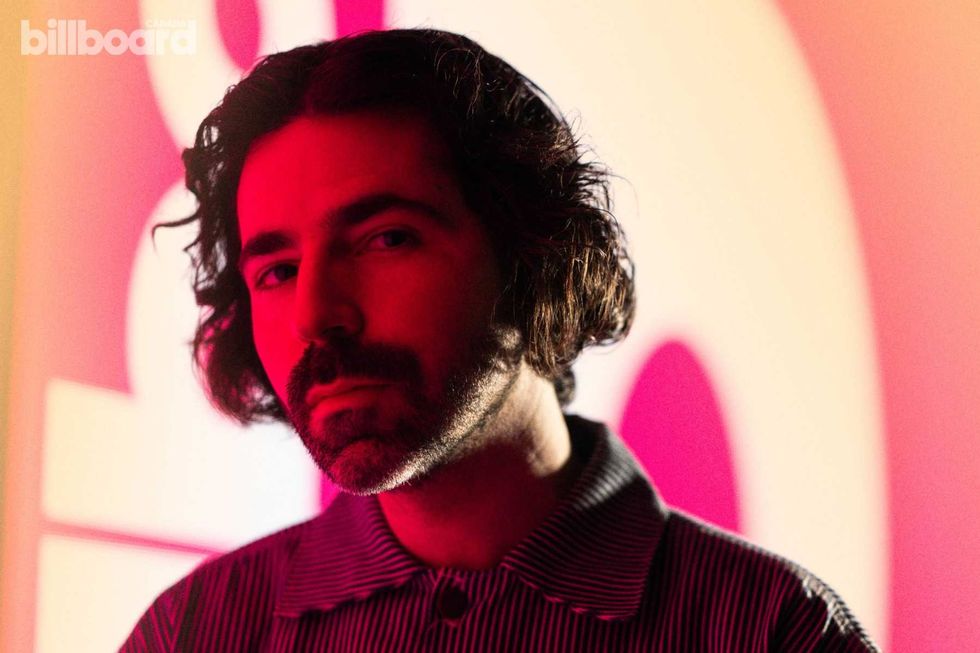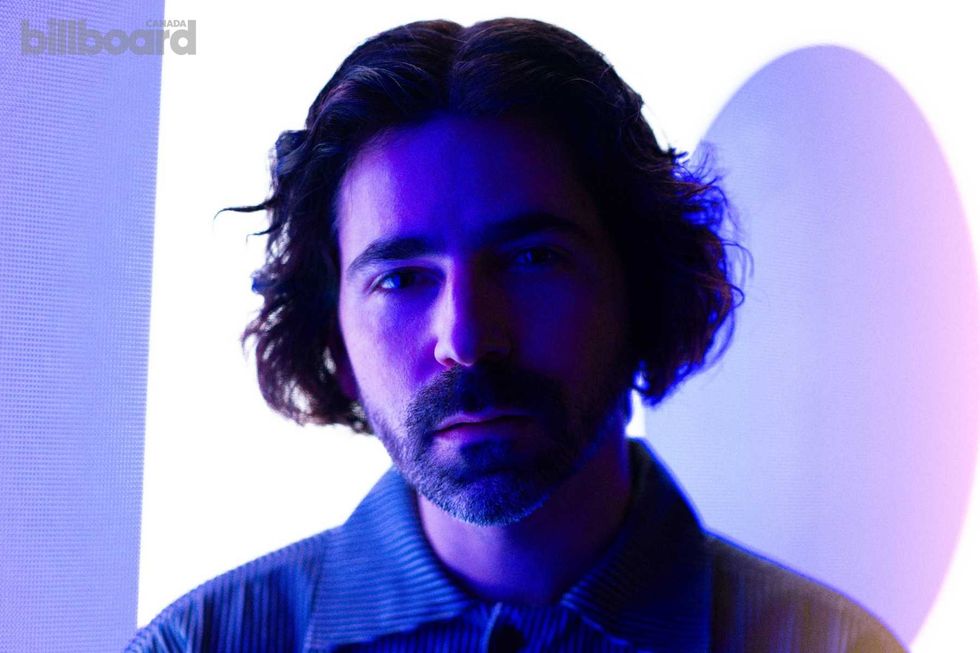Jeremy Dutcher Becomes The First Two-Time Polaris Music Prize Winner: Best Moments from the 2024 Gala
The Indigenous singer-songwriter of Neqotkuk (Tobique First Nation) won for his second album 'Motewolonuwok' and spoke about the breadth of music in Canada. The night's performances ranged from adventurous dance to energetic punk.

Jeremy Dutcher accepts the 2024 Polaris Prize on Sept. 17 at Massey Hall in Toronto.
Jeremy Dutcher has won the Polaris Music Prize. Again!
The Indigenous singer-songwriter of Neqotkuk (Tobique First Nation) became the first two-time winner in the history of the music award, which celebrated its 19th edition last night (September 17) at Massey Hall in Toronto.
With the album Motewolonuwok, Dutcher beat nine other shortlisted albums: Cindy Lee's Diamond Jubilee, NOBRO's Set Your Pussy Free, TOBi's Panic, DijahSB's The Flower That Knew, Allison Russell's The Returner, Bambii's Infinity Club, Elisapie's Inuktitut, The Beaches' Blame My Ex and Charlotte Cardin's 99 Nights.
Dutcher wins the $50,000 prize donated by the Slaight Family Foundation, which goes to the best Canadian album of the year, as determined by a jury of experts based solely on artistic merit.
Most of the artists performed at the Polaris Prize Gala. Here were the best moments.
Jeremy Dutcher Makes Polaris Music Prize History
If there's anything predictable about the Polaris Music Prize, it's that it's almost impossible to predict. While the 40-album long list and 10-albums short list are voted on by a jury pool of 220 people, the winner is chosen by an 11-member "grand jury" that changes every year. Those jurors will have their own interpretations of "artistic merit," which means those closed-doors discussions can vary wildly from year to year.
Jeremy Dutcher winning the award in 2018 for his debut album Wolastoqiyik Lintuwakonawa was already a pleasant surprise, but he seemed shocked to win it again with his second album Motewolonuwok.
The album is an exploration of contemporary Indigeneity and Dutcher's place within it as a contemporary Two-Spirit experimental artist. On his first album, he sang nearly exclusively in Wolastoqey, in part to preserve the language. On this album, he also sang in English for the first time.
"To bring forward art and music in this land, in our languages, with our aesthetics," he said in his acceptance speech. "All I have to say is we are shining for you, now go shine for other people."
In a stunning performance earlier in the night, Dutcher entered through the crowd, then took his place at a piano, surrounded by a six-person choir. They did justice to the songs of Motewolonuwok, which surround his expressive Jeff Buckley-channelling voice with lush orchestration led by Owen Pallett. Pallett won the very first Polaris Music Prize in 2006 for the Final Fantasy album He Poos Clouds, and has also played on winning albums by bands including Fucked Up and Arcade Fire, so he's a Polaris all-star himself.
As for Dutcher, he's now batting 1000, winning for both of his albums.
"Six years ago, I put out my first record [and] this award changed my life," he said. "I have unending gratitude to this music community. Not a single album on this list sounded like each other. That speaks to the breadth of music in this place."
Polaris Punk Energy
Gala performances can sometimes feel staid or serious, but Nobro kicked a hole through that notion and ignited the industry crowd. Playing from their album Set Your Pussy Free (the title a response to United States Supreme Court overturning the right to abortion access), the Montreal band ripped through a medley of short and energetic songs that brought the spirit of 2000s-era pop punk. At times, it almost felt like hype-up music at a sports game, with shouts of "let's go Nobro!" getting the crowd on their side.
The Beaches were not all available to play at the Polaris Prize gala, but they had a good solution: singer Jordan Miller teamed up with Thunder Queens, a rising band of teenagers from London, Ontario. The performance was in part a pay-it-forward gesture from The Beaches, who started young themselves before breaking through in a major way this past year. Thunder Queens impressed as they played from The Beaches' catalogue, especially on the dynamic "What Doesn't Kill You Makes You Paranoid," but it created a hunger to see them play their own music. Maybe next year!
Canadian Music's Big Voices
Jeremy Dutcher wasn't the only one showing off his impressive pipes at the event. In a similar move at the beginning of the event, Elisapie gathered four people around a mic, including a staccato violin, for a performance of Pink Floyd's "Wish You Were Here." The song, retitled "Qaisimalaurittuq," comes from Inuktitut, the Inuk singer's album of covers of meaningful songs to her in the titular language.
TOBi showed off one of the things that makes him stand out as a live performer. He's an impressive technical rapper, but he can also shift into a soulful falsetto at will. Rapper DijahSB, meanwhile, played with a live band and their charismatic, always-in-the-pocket flow found a good home with the heavier guitar, drum and bass rock set up. Unfortunately, their vocals were mixed a bit too low to catch their clever lyrics.
The Performances from Those Who Couldn't Make It
One of the Polaris gala's biggest strengths is gathering most of the shortlisters to perform in person, and those performances are always the best part of the event. In recent years, the event has shifted to cut out most of the other speeches and hoopla to focus in on the music, even going hostless last year. This year, Polaris-winner Debby Friday hosted, and it helped to have someone there mastering the ceremony. Live music was still the highlight, though not everyone made it to the gala. In some cases, that didn't stop them from performing anyway.
Charlotte Cardin was scheduled to perform, but unfortunately came down with Covid before the event. Instead, Billboard Canada's Woman of the Year sent a pre-recorded performance of her piano ballad, which was accompanied by a live string section. It didn't quite make up for the missing piece, but it was a good second fiddle. Allison Russell also brought a high-art solution, missing the gala but getting live ballet representation in a performance inspired by her song "Eve Was Black."
Cindy Lee cancelled their tour midway through after the unexpected critical success of Diamond Jubilee (an album that isn't even on streaming) created sudden demand. They didn't play last night either, but premiered a music video that matched the beautifully uncanny nature of the band's music with animation by frontperson Pat Flegel.
Bambii's Infinity Club Energy
If punk is hard to pull off at a gala, a DJ set is even harder. Bambii pulled it off with what might have been the standout set of the whole night. The DJ and producer played in the dark, while black and white video welcomed the crowd to the Infinity Club. It felt like the adventurous Toronto musician created a whole world in just a few songs. A spotlight in front of her brought a series of dancers to bring some performative spirit, while Sydanie briefly took the spotlight to rap in a guest spot that felt virtuosic in just a few bars.
Bambii's record might have been a bit short in length for the jury's album prize definitions, but it feels like she could be a future winner.


















 Felix Cartal shot at the W Toronto on Feb. 20, 2026. Lane Dorsey
Felix Cartal shot at the W Toronto on Feb. 20, 2026. Lane Dorsey  Felix Cartal shot at the W Toronto on Feb. 20, 2026.Lane Dorsey
Felix Cartal shot at the W Toronto on Feb. 20, 2026.Lane Dorsey